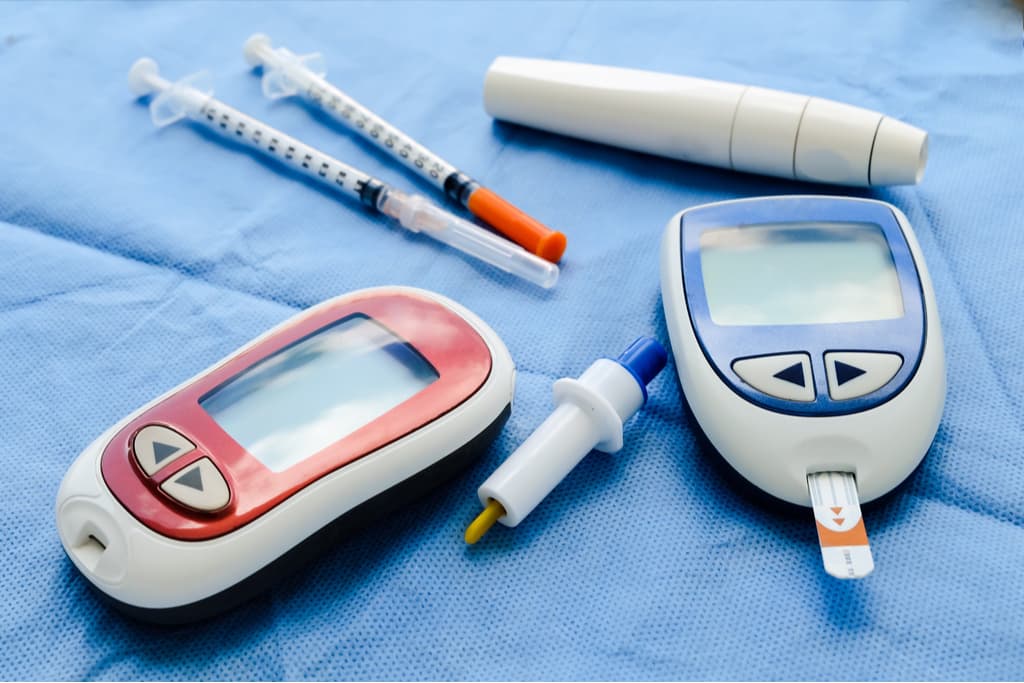Bariatric Surgery Cuts Heart Risk in People with Diabetes

You have a lot on your mind when you have diabetes. How’s my blood sugar? Will this banana spike it too much? Is that ulcer on my foot serious? How’s my heart health?
That last is especially important because heart disease—already the top cause of death in the US—is even more of a concern for people with diabetes. But there’s new hope: A huge study published in September 2019 suggests bariatric surgery can reduce the risk of heart disease in those with diabetes.
Bariatric Surgery: First Line Treatment?
Bariatric surgery is any procedure used on the gastrointestinal system to facilitate weight loss. Bariatric surgery also may be referred to as metabolic surgery because it influences a patient’s metabolism by inducing weight loss and altering the physiology of the gastrointestinal system.
This distinction is important for patients suffering from both obesity and type 2 diabetes. In these cases, bariatric surgery is not just a weight loss solution, but a metabolic surgery, as it has a positive impact as a treatment for type 2 diabetes.
Research Suggests Bariatric Surgery Helps Heart
The Journal of the American Medical Association (JAMA) has published a large and important retrospective study linking metabolic surgery with a decreased risk of adverse cardiovascular events, such as heart attack or stroke or death, in patients with type 2 diabetes and obesity.
The authors reviewed and compared the outcomes in 287,438 patients receiving both metabolic surgical procedures and traditional non-surgical treatment at The Cleveland Clinic from 1997 to 2017, with follow-up through December of 2018. The study concluded that bariatric surgery has a positive impact on type 2 diabetic patients, both in reducing obesity and as a proven treatment for type 2 diabetes.
Other studies have shown that when patients have both type 2 diabetes and obesity, long-term health goals are harder to achieve using medications and lifestyle modifications, such as diet and exercise. In this specific patient set, cardiovascular disease is the major cause of poor health and risk of death.
What Is the Link Between Heart Disease and Diabetes?
If you have diabetes, you are more likely to develop heart disease, increasing your chances of a heart attack or stroke. In fact, heart disease and stroke are the most common causes of death in adults with diabetes. The risk of dying from heart disease or stroke is doubled in adult patients with diabetes, and they also develop heart disease at a younger age than adults without diabetes.
When you have diabetes, you must manage your blood sugar (or blood glucose) to protect your heart. When high blood glucose is left untreated, it can damage not only your blood vessels, but also the nerves that control your blood vessels and heart. The longer you have untreated diabetes, the higher the risk of developing heart disease.
When you are overweight or obese, your ability to manage your diabetes becomes harder, and your risk for other health problems increases. Even if you are not overweight, excess belly fat around your waist can raise your chances of developing heart disease.
What Causes Heart Disease?
The cause of heart disease varies depending upon the type of heart disease. Coronary artery disease or coronary heart disease is the most common form of heart disease and is caused by atherosclerosis.
Atherosclerosis is a buildup of fatty plaques in the arteries that thickens and stiffens the artery walls. These plaque buildups can break off from the artery walls (a process called rupturing). Clots form around them, and if the clot travels through the arteries, it can block blood flow to the heart (a heart attack), the brain (a stroke) or the lungs (pulmonary embolism), starving them of oxygen and destroying tissue. Atherosclerosis often develops due to correctable lifestyle factors, such lack of exercise, poor diet and smoking.
When you have diabetes, high blood sugar damages blood vessels over time. This makes the vessels more susceptible to rupture, which is why people with diabetes have increased risk of heart attack and stroke.
Other major controllable contributors to heart disease include:
- High blood pressure
- High cholesterol
- Obesity – Body mass index (BMI) greater than 30 kg/m2 (you can check your BMI with the calculator on our home page)
- Morbid obesity –BMI of 40 or greater, or BMI 35 or greater with coexisting obesity-related health conditions, such as high blood pressure or diabetes
How Can Bariatric Surgery Help Reduce the Risk of Heart Disease in People with Diabetes?
According to the JAMA study and other research:
- Use of noninsulin diabetes medications, insulin, renin-angiotensin system blockers, other antihypertensive medications, lipid-lowering therapies, and aspirin were significantly lower after metabolic surgery compared with traditional non-surgical treatment.
- Metabolic surgery was associated with significantly lower risk of death over 8 years.
- Metabolic surgery is associated with improvements in glucose levels and blood pressure control, contributing to a significant reduction in the risk of heart failure.
- A significantly lower incidence of diabetic nephropathy was observed in the surgical patients compared with nonsurgical patients. Prior studies have also suggested this same result.
- Metabolic surgery can improve insulin sensitivity by two to three times within days after surgery, before any noticeable weight loss even occurs. A complete resolution of diabetes occurred in 76.8 percent of surgical patients in a JAMA systematic review and meta-analysis.
Smaller clinical trials have consistently shown a significant effect of metabolic surgery on obesity and improvements in diabetes control. Due to its success in treating and even resolving type 2 diabetes and the associated health benefits, bariatric surgery is now being used on patients who are less obese than prior requirements for surgery.
If you have diabetes and are ready to take control of your health, request an appointment at Advanced Laparoscopic Associates. Our expert surgeons can tell you if you meet the criteria for weight loss surgery and which bariatric procedure is right for you.

